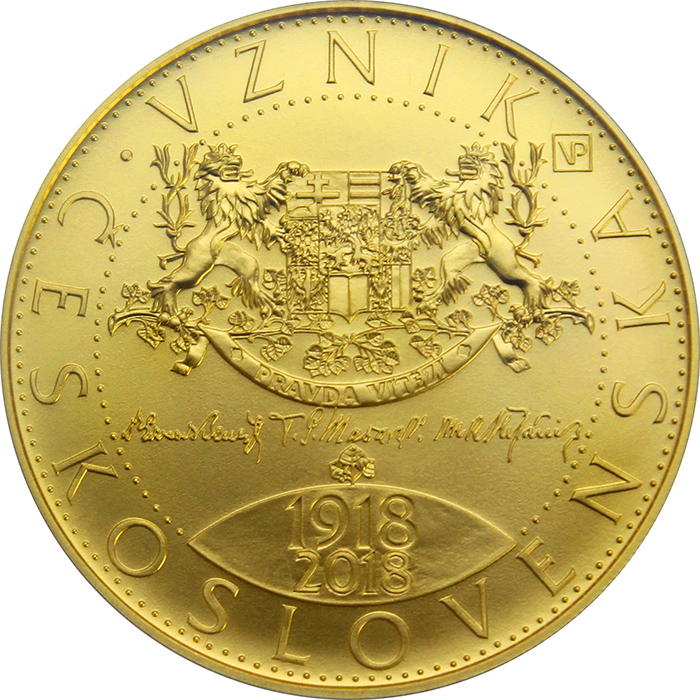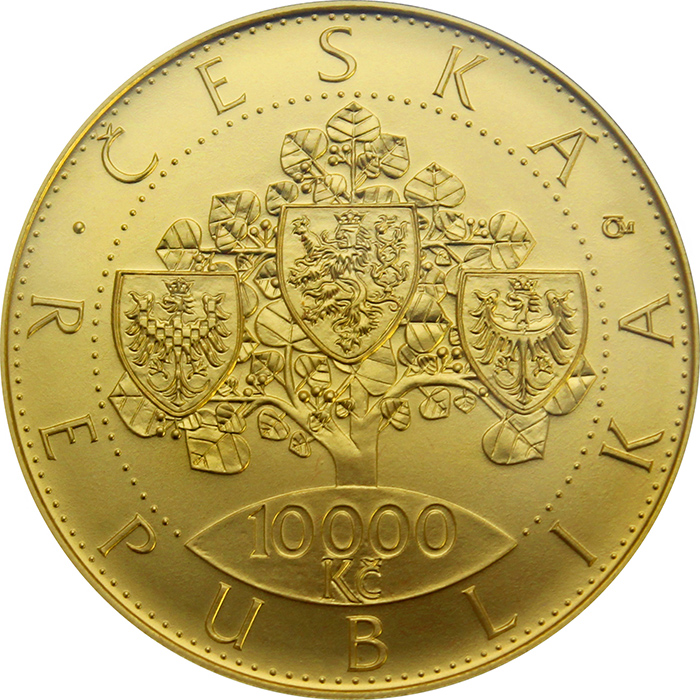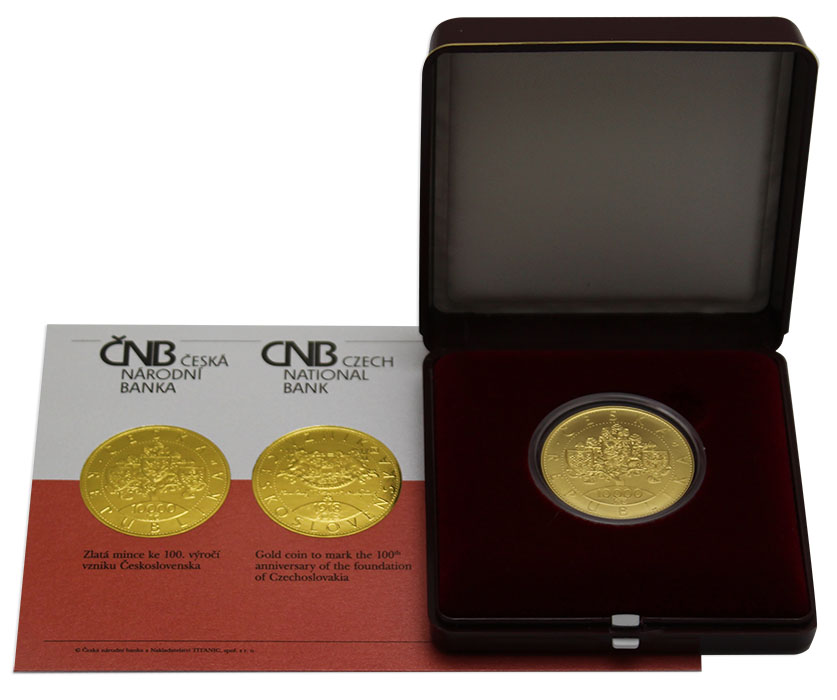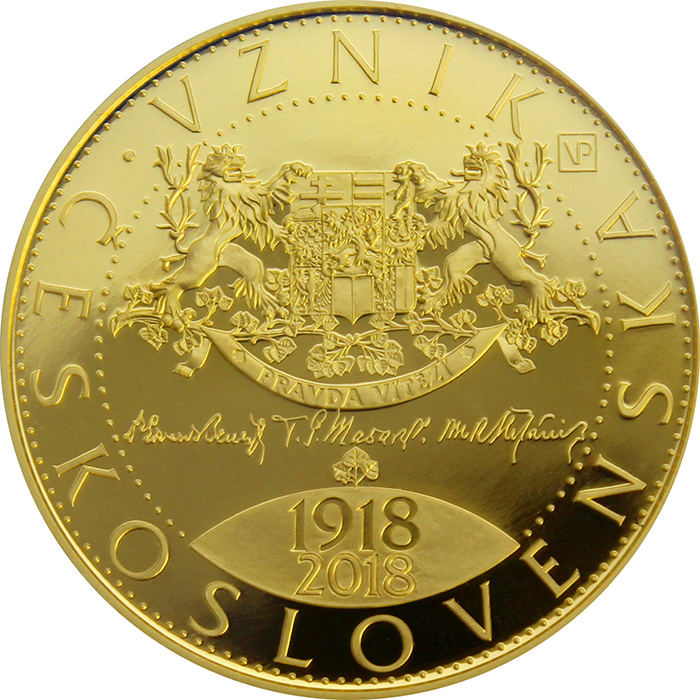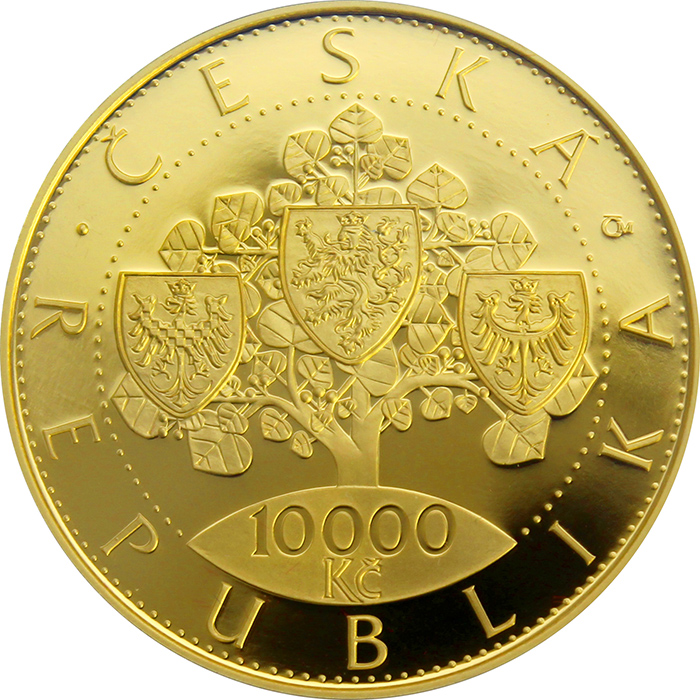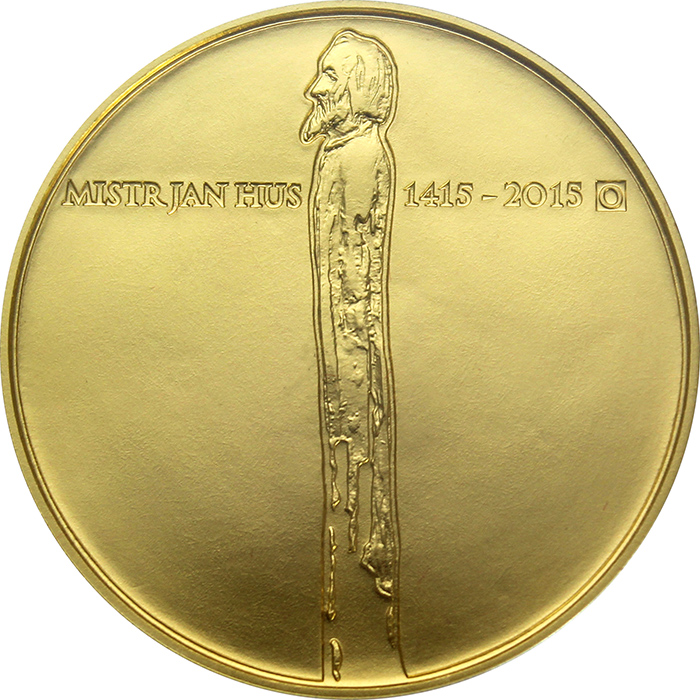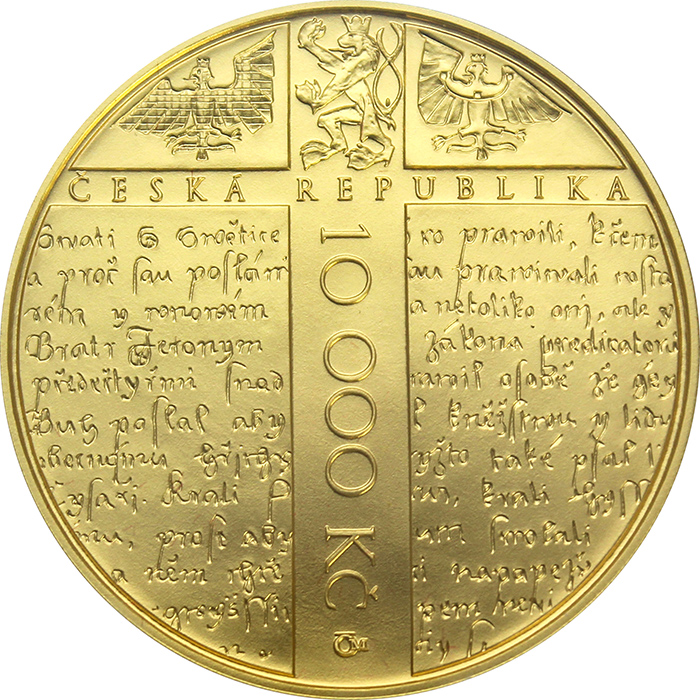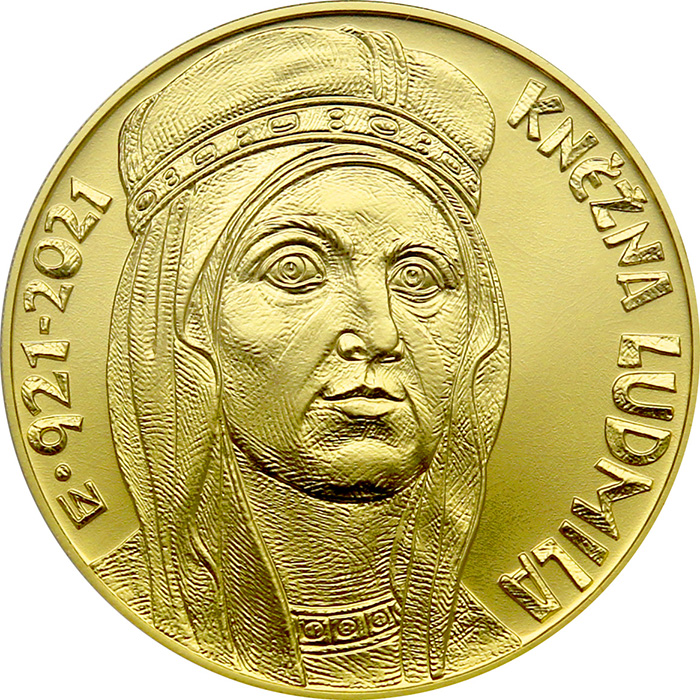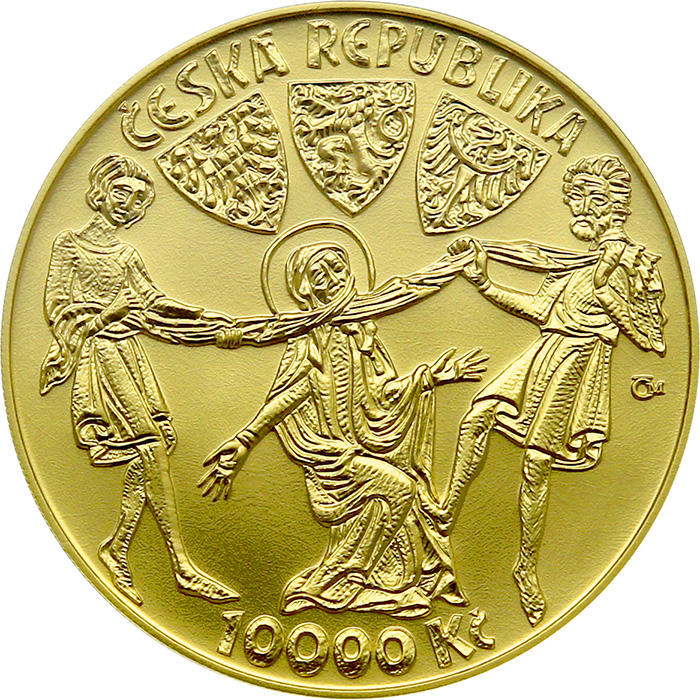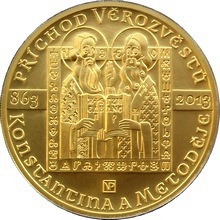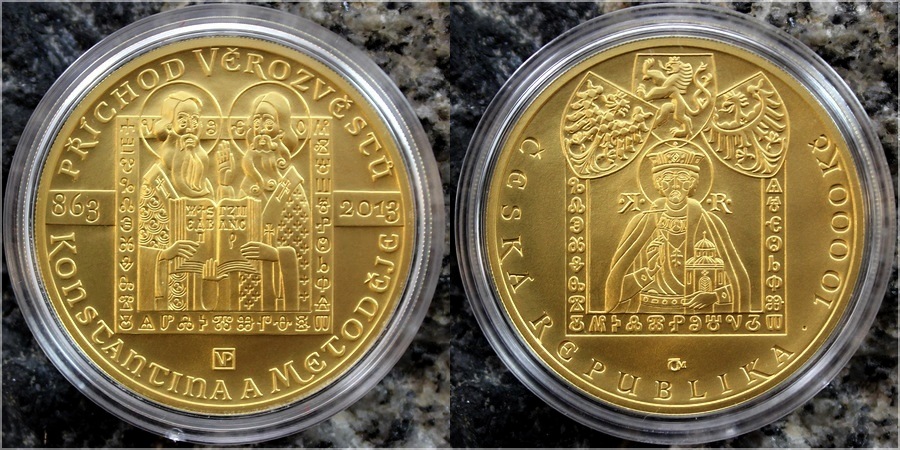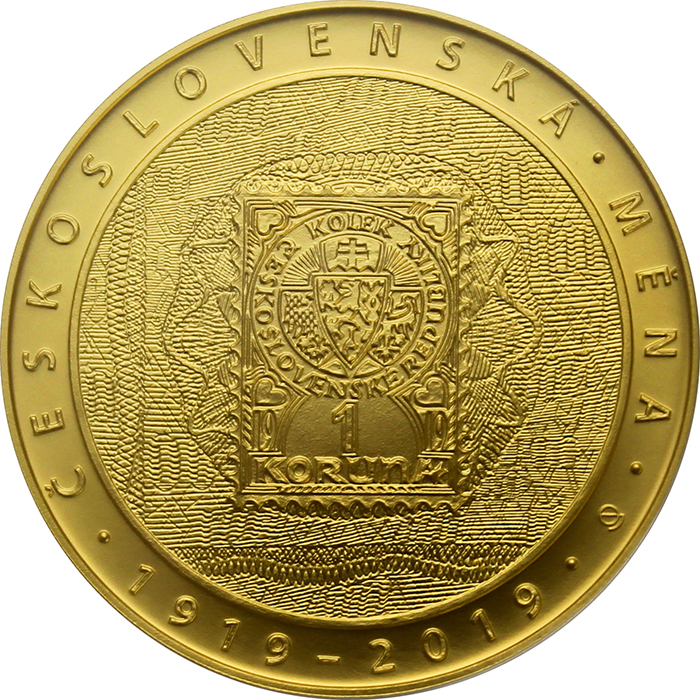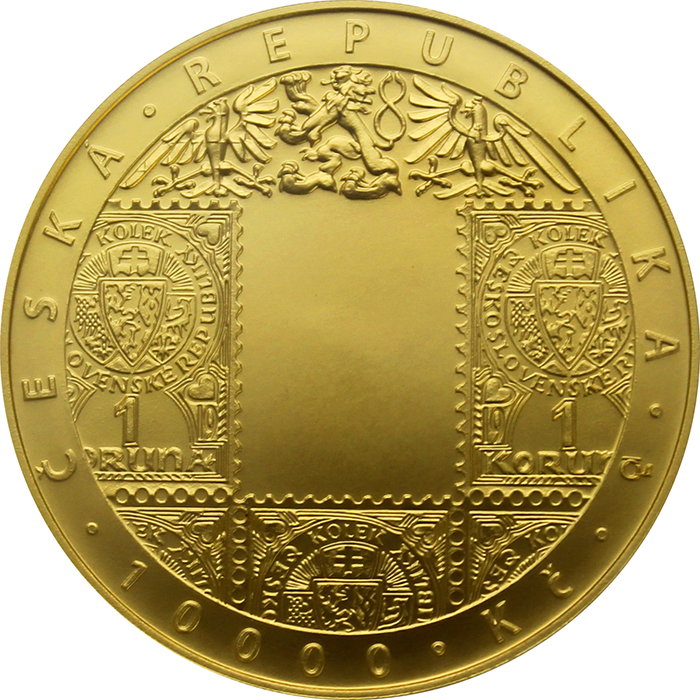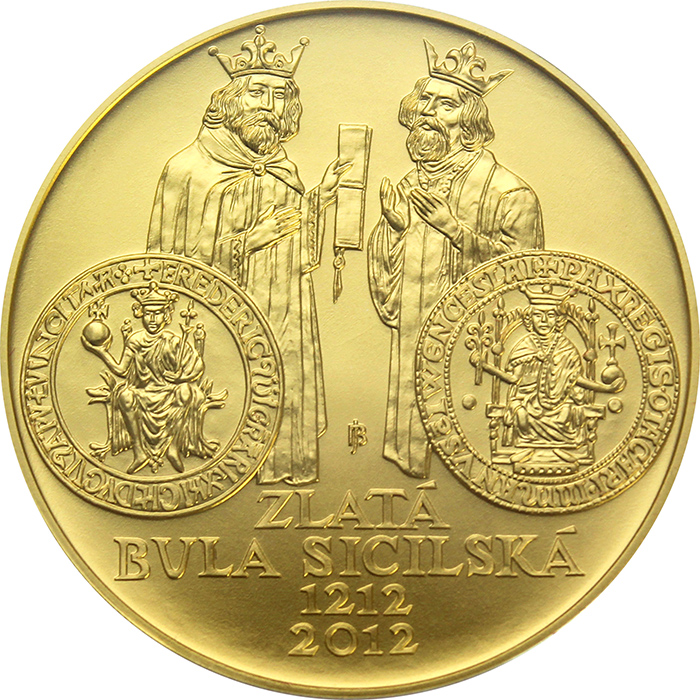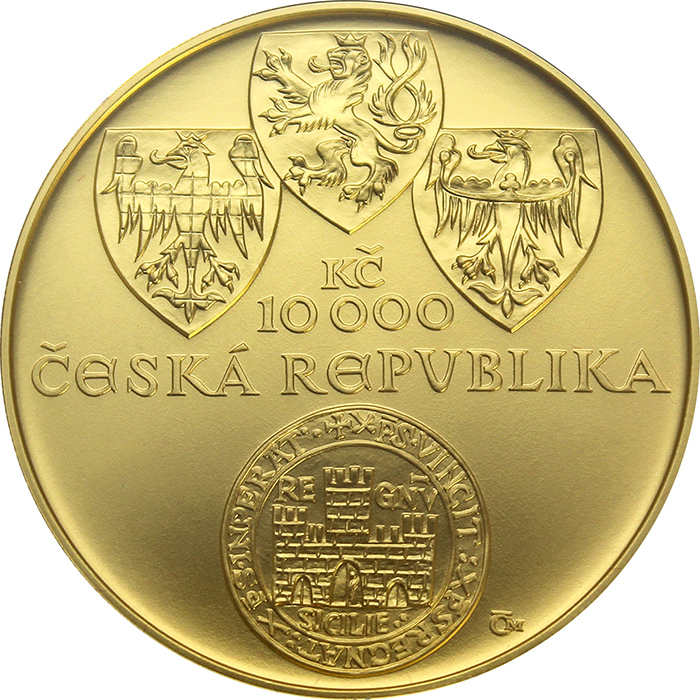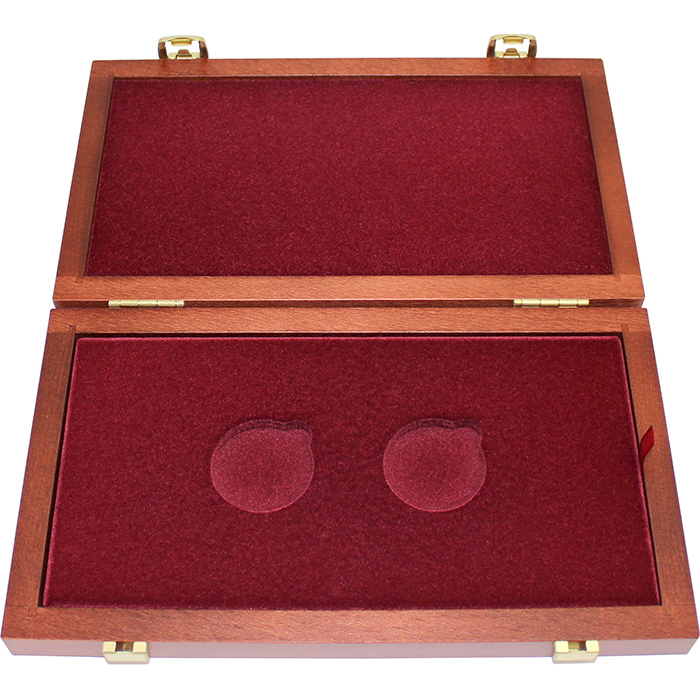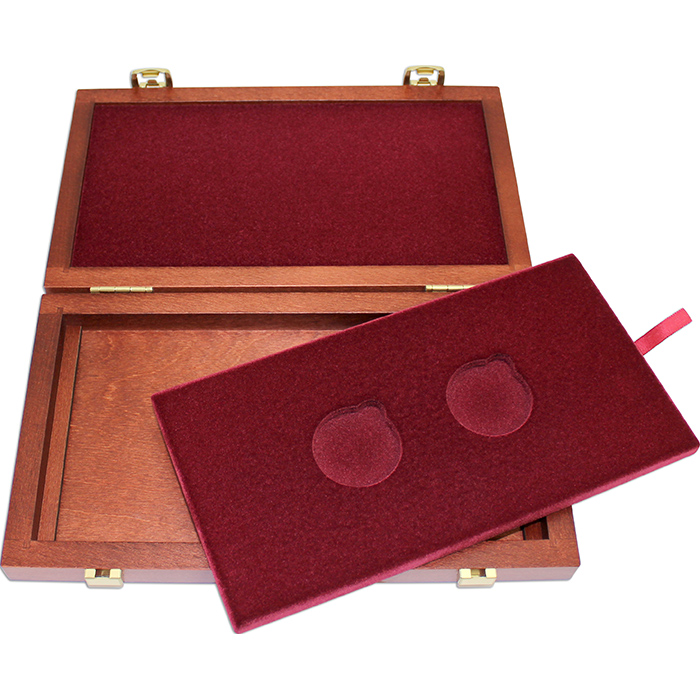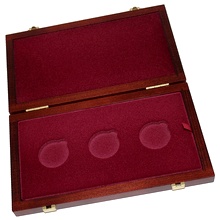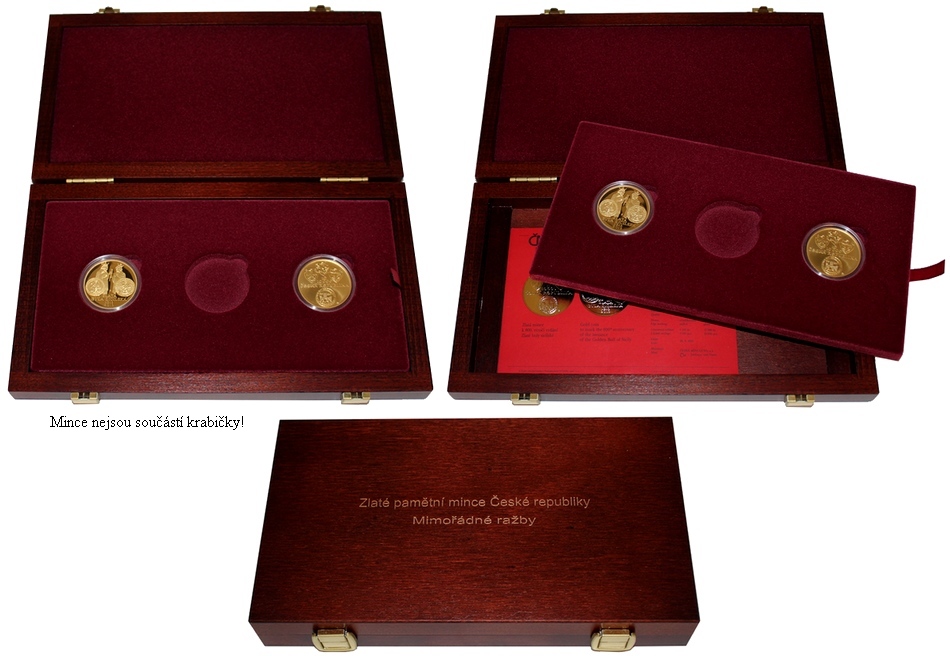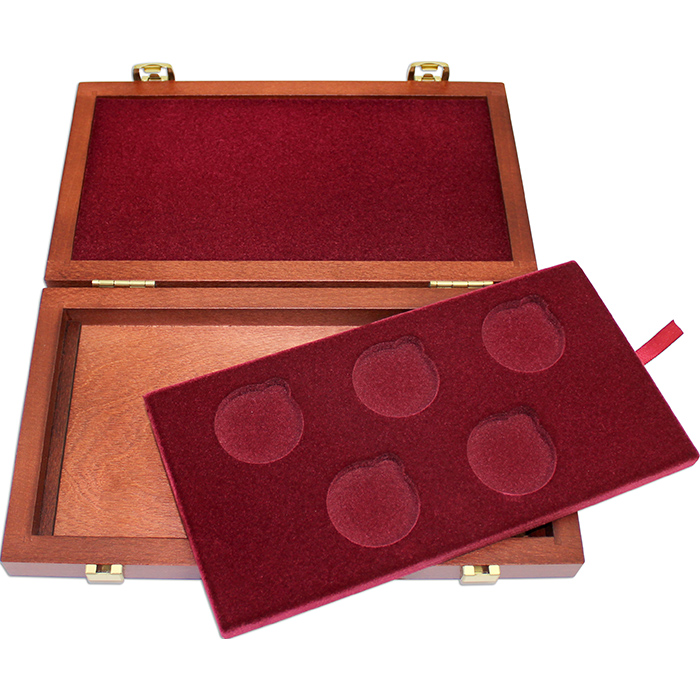Gold Coin 10000 CZK Establishment of Czechoslovakia 1oz 2018 Standard
The product cannot be ordered now.
NOT IN STOCK
View the product
Detailed description
Extraordinary mintage of gold coins - 10000 CZK The Establishment of Czechoslovakia
On the reverse side of the coin, the large emblem of the Czechoslovak Republic is depicted in the upper part of the coin field. Below the emblem are facsimiles of the signatures of Edvard Beneš, T. G. Masaryk and M. R. Štefánik. The lower part of the coin field depicts a hill with a linden sapling. Inside the mound are the years "1918" and "2018". Around the perimeter of the coin, the text 'VZNIK ČESKOSLOVENSKA' is set in a two-line pearl. The initials of the author of the coin, academic painter Vladimír Pavlica, are in the frame behind the word "VZNIK", which are formed by a composition of the letters "V" and "P".
The obverse side of the coin depicts a hill with a linden tree. The crown of the lime tree is covered with shields with heraldic animals from the great state emblem. In the centre is the Czech lion, to the left of it the Moravian eagle and to the right of it the Silesian eagle. Inside the mound is the denomination of the coin with the abbreviation of the monetary unit "10 000 CZK". The name of the state 'CZECH REPUBLIC' is placed in a two-line pearl in the description around the perimeter of the coin. The mark of the Czech Mint, which consists of a composition of the letters 'Č' and 'M', appears at the right edge of the coin after the word 'CZECH'.
Each coin is accompanied by a catalogue card in white and red, which contains a description of the coin and its plastic representation.
Foundation of Czechoslovakia
The founding of Czechoslovakia was the process that led to the establishment of an independent Czechoslovakia. Czechoslovakia was proclaimed on 28 October 1918. Its borders were defined by the peace treaties and the resulting decisions under the Versailles peace system.
On 28 October 1918, a delegation of the National Committee led by Karel Kramář began negotiations in Geneva with Edvard Beneš, the leader of the anti-Austrian foreign resistance, on the creation and form of an independent Czechoslovak state. On the same day, at around 9 a.m., Antonín Švehla and František Soukup, on behalf of the National Committee, went to take over the Grain Institute in Prague in order to prevent the transport of grain to the front. Then the news of the recognition of the terms of peace by Austria-Hungary spread.
On the same day, at around 9 a.m., Antonín Švehla and František Soukup, on behalf of the National Committee, went to take over the Grain Institute in Prague in order to prevent the transport of grain to the front. Then the news of the recognition of the terms of peace by Austria-Hungary spread.
The terms included recognition of the autonomy of the peoples of Austria-Hungary, which the people interpreted as recognition of independence. This news became the impetus for lively demonstrations in which the people cheered in the streets and destroyed symbols of Austria-Hungary. On the evening of the same day, the National Committee issued its first law, the Law on the Establishment of the Independent State of Czechoslovakia, followed by the publication of the National Committee's proclamation "People of Czechoslovakia. Your age-old dream has come true ...". Both documents were signed by Antonín Švehla, Alois Rašín, Jiří Stříbrný, Vavro Šrobár and František Soukup - later called the "Men of 28 October". On the same day, four representatives were added to the National Committee; the representatives of the Germans and Hungarians were not invited.
After the declaration of independence of Czechoslovakia, celebrations, ceremonial parades and religious services were held in towns and villages. The people rejoiced at the independence and the end of the war. During these celebrations, the symbols of the Austro-Hungarian state were destroyed, but also things that even resembled the Habsburg monarchy.
Product Specifications
Application form
Thanks to our position on the market, we can try to provide you with a product that is currently sold out or unavailable for a longer period of time. Simply fill in the application form and we will contact you as soon as we are able to secure the product.
Filling in the application form is not binding for you.
Buyback contact form
We will be happy to buy investment metals purchased from us or from our competitors. Our customers always get the highest price offered at any given time. Fill out the form below and we will contact you. Thank you for your trust.
